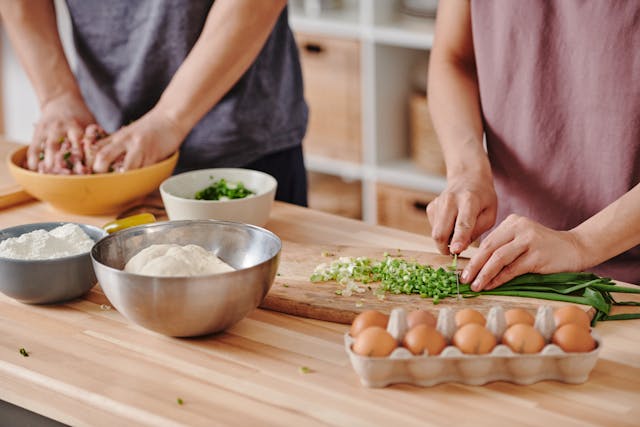Many restaurants today have been carelessly contaminating their food, leading to agitated customers. This has also led to some sick customers. Physical food contamination has been a common, careless issue due to cooks preparing and cooking their foods in filthy environments, not practicing proper hygiene, or using unclean utensils. If you want to be a careful cook who cares about preventing contamination in your kitchen, here are four effective ways to prevent physical contamination in your food.
What is Physical Contamination in Food?
When you start to prepare and cook your food in a filthy environment, that is considered physical contamination in food. Restaurant workers who don’t wear gloves or hairnets while preparing food are another good example. Unfortunately, this has been a huge problem in plenty of eateries today. Many customers have found themselves ordering a dish that turns out to have a piece of hair or another inedible item stuck in it. There are several reasons as to how this horrible thing happened to you and we’re going to discuss those common causes of contamination.
Common Causes of Physical Contamination
The most obvious common cause of physical contamination in food is how you keep your kitchen. If your counter and stove are unclean, this could contaminate your food. When your kitchen utensils are covered with food or other particles and you use them to cut your veggies anyway, that’s cross-contamination. Utensils that are damaged and used on your food are also contaminated. It could also be you coughing on your food while trying to prepare it. Improperly storing your food and kitchen items are also good examples of physical contamination.
4 Effective Ways to Prevent Contamination in Your Kitchen
Now that we know what is causing the contamination of foods, it’s important that we take necessary measures to rectify these problems. We could start by following these four effective ways to preventing contamination in the kitchen. When you’re in your own kitchen cooking, you can control the upkeep of your surroundings and the tools you use. Because contamination leads to sickness, it’s important to be mindful of your kitchen.
Wash your Utensils and other Kitchen Tools
Before a repairman starts using his tools, he has to make sure they’re in good shape. He doesn’t want to start fixing anything with a broken screwdriver or wrench. The same applies when cooking in the kitchen. You don’t want to take an unhealthy risk of cooking with a filthy spatula or spoon. Cutting your veggies or fruits with a knife that already has food on it doesn’t make sense either.
Use Separate Cutting Boards for Different Foods
It’s ideal to use separate cutting boards when cutting different foods. You’ll be cross-contaminating if you use the same cutting board. Try using one cutting board for fresh produce or foods that won’t be cooked and another for raw meat, poultry, or seafood. Use hot, soapy water to clean cutting boards that touch raw meat, poultry, or seafood.
Wash your Fruits and Veggies, Not Meat and Poultry
After buying them from the grocery store, you must rinse your fruits and veggies under running water before cutting into them. In some cases, it could be best to scrub firm produce such as melons and cucumbers with a clean brush. It’s important to wash your produce to prevent any bacteria from spreading. Be sure to dry produce with a clean cloth towel.
Wash your Hands Completely
This one’s a no-brainer, but you’ll be surprised at how much home cooks take this for granted. Some restaurant cooks don’t exactly do this thoroughly either. Unfortunately, people have to be reminded to wash their hands before handling food. This is always important to avoid the spread of germs. Be sure to do it all times- before, during, and after you prepare food, after handling raw meat, after you touch something unclean, etc. Wash your hands the right way by thoroughly scrubbing them with soap and water.

Effects of Physical Contamination in Your Kitchen
There are a lot of risks that come with physical contamination of your food in the kitchen. Besides bacteria being spread, there are also foodborne pathogens such as salmonella and listeria. There have been a lot of foods from grocery stores being recalled because there have been found some contaminants in them that shouldn’t be there. To avoid getting sick, it’s important to be vigilant in staying clean, washing and drying your produce, and using separate cutting boards when handling different foods.
What are your effective ways to prevent physical contamination of food? What measures do you take to keep your kitchen clean while cooking? Feel free to share your thoughts on this in the comments section below. As always, be sure to like or share this post with the next home cook you know.

